From the NYT Sunday Magazine
|
My Sister Did Me Wrong in Secret. Should I Tell Her I Know?
The magazine’s Ethicist columnist on why we should express resentment when we are wronged. |
The Books About Sex That Every Family Should Read
The author Cory Silverberg bucks decades of conventional wisdom on how to teach kids about intimacy. |
No One Told Me Mac Salad Could Be This Good
A staple of the plate lunch in Hawaii is lifted by a bit of heat and a tangy note. |
He Could Barely Walk and Had to Give Up Golf. What Was Wrong?
Over six years, many doctors told the patient he had peripheral neuropathy. What they couldn’t tell him was why — or how to treat it. |
The Vanishing Moderate Democrat
Their positions are popular. So why are they going extinct? |
July 04

| Lysychansk, Ukraine, last month. Russia subjected the city to prolonged bombardment.Tyler Hicks/The New York Times |
|
Ukraine’s dwindling hopes in Luhansk Province
|
| Lysychansk, the last major city held by Ukraine in the eastern province of Luhansk, has fallen, giving Moscow a victory in its campaign to capture the Donbas, a mineral-rich region bordering Russia. Pressure is now redoubling on the U.S. and its allies to get the more powerful weapons they have promised Ukraine to the front. |
| Lysychansk had held out for a week after Russia seized control of Sievierodonetsk, its twin city across the river. But as Russia inundated Lysychansk with artillery fire and strangled its supply lines, building on months of bombardment and weeks of ferocious street fighting that reduced both cities to grayed-out husks, Ukrainian defenders were forced to retreat. |
| Russia now controls more than a fifth of Ukraine — much of it cities in name only, skeletal remains emptied of people after months of shelling — but it will need to replenish depleted forces and ammunition as it wages what promises to be a fierce, drawn-out ground war. Russian forces yesterday shelled the Ukrainian city of Sloviansk, killing at least six people. |
| Next steps: The next phase of the war will prove a test not just of military logistics but also of solidarity for Ukraine’s Western allies. As the conflict drags on, their own citizens are feeling the economic pain, and unity among the allies may be difficult to sustain. |
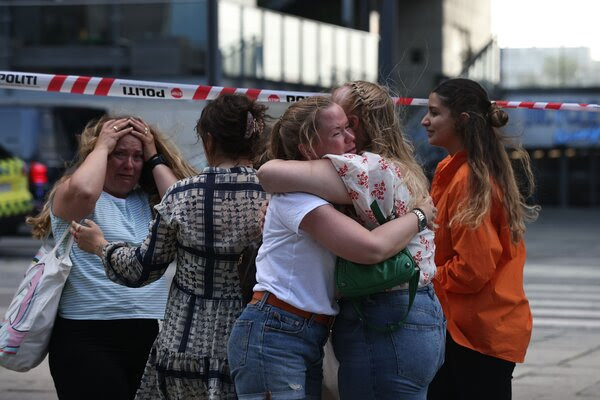
| Outside the Field’s shopping center in Copenhagen.Olafur Steinar Gestsson/EPA, via Shutterstock |
|
Several dead in Copenhagen mall shooting
|
| The shooting took place at Field’s, the largest shopping center in Denmark. Video and images posted on social media showed people sprinting out of the mall and ambulances lining its exterior. Armed police officers were running near the mall, and a helicopter hovered overhead. A Harry Styles concert scheduled nearby was canceled over safety concerns. |
| A mall employee told a local news outlet that “masses of people” had run to seek shelter in the Kentucky Fried Chicken at Field’s. Staff members barricaded the doors and remained there for about 45 minutes, the employee said. Other witnesses described scenes of panic and of employees helping shoppers flee through the back rooms of stores. |
| Context: Gun violence in Denmark is relatively rare. According to gun violence data from the University of Sydney, Denmark has a little over one gun death per 100,000 people, while the U.S. has a little over 12. |
| First person: “He seemed violent and angry, and he was shouting as he ran and took the gun and smashed the windows,” a witness to the shooting told a TV news station. “You’d think it was an action movie as he walked. He seemed very proud of what he did, I could tell.” |

| The Peace Bridge connecting the Catholic and Protestant sides of Derry, Northern Ireland.Andrew Testa for The New York Times |
|
Old tensions in Northern Ireland
|
| After nearly 25 years of peace, residents worry that Derry’s hard-won gains are in jeopardy. Brexit has disrupted Northern Ireland’s fragile political and economic equilibrium, while the British government seems determined to put the Troubles, as the guerrilla war between Catholic nationalists and Protestant unionists is commonly known, and its legacy in the past. |
| The British government has proposed legislation that would effectively stop new criminal investigations or civil actions in relation to killings committed during the Troubles. That has sparked outrage from the families of victims, who say it would deprive them of justice, especially in cases where British security forces or the police colluded with paramilitary gangs. |
| While the legislation, which the government hopes to pass this year, affects a much smaller number of people than the post-Brexit trade rules, it is easier to understand and, therefore, may be more likely to stoke tensions. The debate over unsolved killings particularly haunts the police, who are still viewed in Derry with deep resentment by much of the public. |
| Strained relations: No one is predicting a return to the horrific violence that engulfed Derry in the Troubles. But paramilitary groups like the New I.R.A., the Irish National Liberation Army and the Ulster Defense Association still operate in Derry’s neighborhoods, mostly in the drug trade, the police say. |
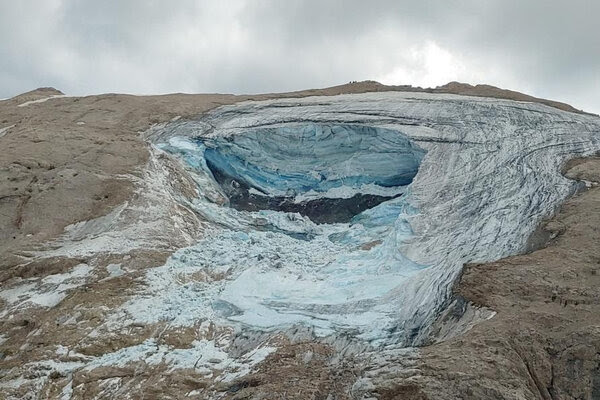
| Alpine Rescue Services, via Reuters |
|
|
The glacier has been shrinking for years, and climate change contributed to the tragedy, Italy’s prime minister said. Fourteen people are missing.

| Anna Rose Layden for The New York Times |
|
|
July 05
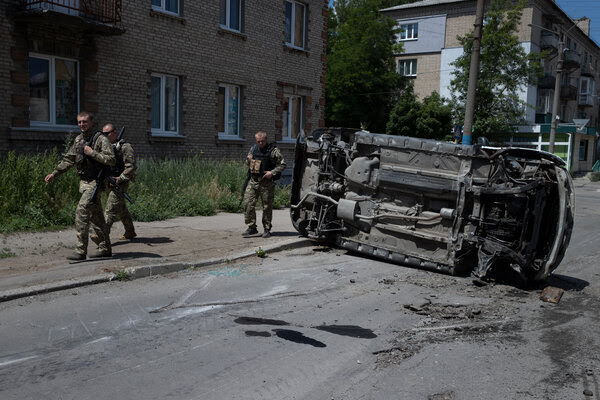
| Ukrainian soldiers in Lysychansk last month.Tyler Hicks/The New York Times |
|
Russia’s grinding gains in Ukraine
|
| After Russia’s capture of the cities of Sievierodonetsk and Lysychansk, Moscow controls the Luhansk province in eastern Ukraine. The Russian military relies on its superior firepower and on making grinding incremental advances — a strategy that is paying off. |
| Moscow is now focused on population centers in neighboring Donetsk, the other province in the Donbas region. The city of Bakhmut has emptied out, as residents anticipate a coming assault. It has suffered sporadic shelling since Russia’s invasion of Ukraine began in February. |
| Among Ukrainians, a creeping sense of resignation is mounting. The country’s battered and vastly outgunned forces have been forced to rely on raw recruits and are suffering from the strain of combat, retreat and constant Russian shelling. But the invasion has taken a brutal toll on Russia, too. Moscow is suffering hundreds of casualties a day, according to Western intelligence. |
| A booster dose being administered in San Juan, Puerto Rico, in May.Erika P. Rodriguez for The New York Times |
|
Updated Covid shots in the U.S.
|
| Regulators in the U.S. have committed to updating the coronavirus vaccines created in 2020 for this fall’s booster campaign, with new formulas meant to defend against ultra-contagious Omicron subvariants. The new cocktails are part of an effort to drastically speed up vaccine development and to appeal to Americans who have so far spurned booster shots. |
| But it is unclear whether those modified boosters will arrive in time. Seeking to match the latest forms of the virus, the F.D.A. asked vaccine manufacturers to target the BA.4 and BA.5 subvariants, rather than the version of Omicron that emerged last winter. Pfizer and Moderna said that they could deliver subvariant vaccine doses no earlier than October. They have already begun making doses tailored to the original form of Omicron. |
| Many scientists believe that updated boosters will be critical for diversifying people’s immune defenses as subvariants eat away at the protection offered by vaccines. Covid deaths in the U.S. have recently begun rising, as cases surge. Epidemiologists predict as many as 200,000 Covid deaths in the U.S. within the next year. |
| BA.4 and BA.5: The most evasive forms of Omicron yet, these two subvariants appear to be driving a fresh surge of cases across much of the U.S. and have sent hospital admissions climbing in Britain, France, Portugal, Belgium and Israel. |
| The downtown Highland Park area where a gunman opened fire yesterday.Jamie Kelter Davis for The New York Times |
|
Six killed at July 4 parade near Chicago
|
| A 22-year-old man was taken into custody last night after a person opened fire from a rooftop into a Fourth of July parade in Highland Park, an Illinois suburb north of Chicago, killing at least six people and injuring dozens more. The man was detained after hundreds of law enforcement officials spent hours scouring the region. |
| After the shooting on Monday morning, the police asked nearby residents to turn over any security camera footage to investigators. Later, Robert Crimo, who had been identified as “a person of interest” in the shooting, was spotted in a car by a North Chicago police unit. When the police tried to stop him, Crimo fled, leading officers on a brief chase, the police said. |
| At the scene of the shooting, lawn chairs remained scattered along the parade route as police with rifles patrolled the streets. Those injured ranged in age from 8 to 85. At least 25 of them suffered gunshot wounds, the authorities said. |
| White House: In a statement, President Biden said he was “shocked by the senseless gun violence.” The U.S. faces an epidemic of gun violence: In just the last eight weeks, 10 people were fatally shot at a grocery in Buffalo and 21 people — 19 students and two teachers — were killed by a gunman at an elementary school in Uvalde, Texas. |


| Samar Hazboun for The New York Times |
|
July 06

| Prime Minister Boris Johnson of Britain at a cabinet meeting on Tuesday with Sajid Javid, left, then the health secretary, and Rishi Sunak, third from the right, then the chancellor of the Exchequer.Pool photo by Justin Tallis |
|
Boris Johnson’s power lies in the balance
|
| Boris Johnson, the British prime minister, is battling for his political survival after the bombshell resignations yesterday of two top cabinet officers: Rishi Sunak, the chancellor of the Exchequer, and Sajid Javid, the health secretary. In the hours that followed, Alex Chalk, the solicitor general, and several people in junior government posts also quit. |
| The latest crisis centers on Chris Pincher, a former minister in Johnson’s government who is accused of groping two men. Johnson initially claimed he was unaware of similar previous allegations against Pincher, including a formal complaint. But after news reports suggested the contrary, Johnson was yet again accused of lying. He has apologized for appointing Pincher. |
| Just a month ago, Johnson survived a no-confidence vote by his fellow Conservative lawmakers after unrelated scandals. He is, therefore, protected against another vote for a year, meaning pressure to resign from within his own government could be the only effective method of forcing him out. |
| Reshuffle: Moving quickly to plug the holes in his cabinet, Johnson gave the critical job of chancellor of the Exchequer to Nadhim Zahawi, who had been the education secretary. The job of health secretary went to Steve Barclay, who had been a minister in the Cabinet Office. |
| A news conference near where a gunman opened fire on a Fourth of July parade and killed seven people in Highland Park, Ill.Jamie Kelter Davis for The New York Times |
|
Suspect charged in July 4 mass shooting
|
| Robert Crimo III has been charged with seven counts of murder in connection with the deaths of seven people at a Fourth of July parade in Highland Park, Ill., a suburb north of Chicago. Eric Rinehart, the Lake County state’s attorney, said he expected to file dozens more charges against Crimo in the coming days. Crimo faces life in prison if convicted. |
| The charges come as the police revealed they had seized 16 knives, a dagger and a sword from Crimo in 2019 after a relative told officers that Crimo had planned to “kill everyone.” Earlier that year, someone had reported to the police that Crimo had attempted suicide, raising questions about how he was able to legally purchase several guns in the time since. |
| The shooting came days after President Biden signed the most significant gun measure to clear Congress in nearly three decades. It was unclear whether any of the regulations would have stopped the gunman, who carried out his attack in a state with tough gun laws but that is bordered by states where firearms are much easier to come by. |
| Toll: A seventh victim died yesterday after five were killed at the parade on Monday, and a sixth died at a hospital. More than 30 people were wounded by the gunshots fired from a rooftop, officials said. Victims ranged in age from 8 to 85, doctors who received the injured at hospitals said. |
| Lawyers protesting last week in London outside the Central Criminal Court, also known as the Old Bailey.Carl Court/Getty Images |
|
Britain’s summer of labor discontent
|
| Labor unrest in Britain is growing as the cost of living soars. Criminal-defense lawyers are the latest group to demand more pay, following the biggest strikes in a generation by rail workers last month. Staff members at the national airline, British Airways; state schoolteachers; and health and postal workers have also threatened walkouts. |
| As energy costs surge, inflation approaches double figures and taxes and the cost of loans increase, Britons are demanding higher wages with a militancy not seen in years. For some, the strikes have raised the specter of the 1970s, when labor unrest left trash uncollected, prevented the dead from being buried and dealt a fatal blow to the government of the day. |
| Public services, long under strain, seem to be crumbling in some cases. Nearly 6.5 million people in England are waiting for hospital treatment, and there are 100,000 staff vacancies in the country’s health care system. Britons have been advised to allow 10 weeks if they want to renew their passports, and the average wait to take a driving test is 14 weeks. |
| Pushback: A resolution to the demands of the various groups of workers looks remote. While inflation is eroding spending power across the country, the government is determined to curb raises for fears that they would push inflation higher and prompt ever greater pay demands. |
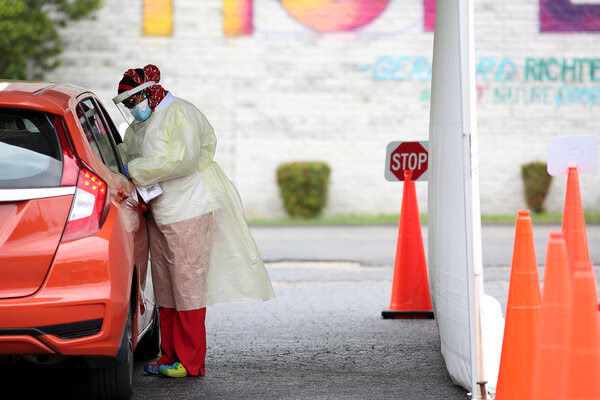
| Veasey Conway for The New York Times |
|
|
July 07
| Prime Minister Boris Johnson at the House of Commons yesterday.:Jessica Taylor/UK Parliament, via AP |
|
Pressure mounts on Boris Johnson to resign
|
| Boris Johnson, the British prime minister, has resisted calls to resign, even as a delegation of cabinet members yesterday went to Downing Street to plead with him to step down. More than 30 government ministers and aides have so far quit — yet Johnson has vowed to fight on, insisting he has a mandate from voters to steer Britain into its post-Brexit future. |
| British lawmakers yesterday considered — and then postponed, for a few days at least — a change in party rules that would allow another confidence vote, possibly next week, against the prime minister, who survived such a vote just a month ago. But consensus is growing that Johnson’s time in power is most likely drawing to a close. |
| Given the speed with which Johnson’s government is unraveling, many Tory lawmakers believe that he should be replaced quickly to mitigate the electoral damage to the party. Johnson has not ruled out calling a snap election to throw his fate to British voters. Such a move would need the assent of Queen Elizabeth II and could precipitate a political crisis. |
| Departures: Johnson last night fired one of his closest advisers, Michael Gove, from a powerful economic post after Gove urged him to resign. That moment of drama was followed by the late-night resignation of another cabinet minister, Simon Hart, the Welsh secretary. |
| Residents of eastern Ukraine waiting to board a bus to Poland.Mauricio Lima for The New York Times |
|
Millions displaced by the war in Ukraine
|
| More than 11 million Ukrainians — a third of the population — are estimated to have been forced from their homes since Russia invaded in February, including more than 6.27 million who are still in the country, according to official data. Almost 5 million people have fled into Europe as refugees, according to the U.N. |
| Most of Ukraine’s displaced persons are now coming from the east, as that region becomes the center of the conflict. The majority are women and children, and many face shortages of food, water and basic necessities, according to U.N. experts. Five months into the war, many have started to fear that they will never return home. The few who remain typically have ailing family members, are too poor to move or have stayed to protect property. |
| Helping the displaced return to their homes — or find new ones — looms as one of Ukraine’s greatest challenges, whatever the outcome of the war. Some of their hometowns may not return to Ukrainian control. Others have been pulverized by the Russian Army’s scorched-earth tactics. |
| In other news from the war: |
| Demonstrators in Strasbourg yesterday.Patrick Hertzog/Agence France-Presse — Getty Images |
|
Europe deems gas and nuclear energy projects ‘green’
|
| Critics said it would lock in and prolong Europe’s reliance on fossil fuels, while the measure’s proponents, including members of the European Commission, said it was part of a pragmatic approach to the transition to renewable energy, especially as Europe seeks to wean itself off Russian fuel imports in the wake of Russia’s invasion of Ukraine. |
| The war is forcing European countries to get gas from anywhere other than Russia, or double down on renewable sources like wind and solar. The vote signaled an intention to prolong their reliance on gas — the principal component of which is methane, a greenhouse gas. Europe is aiming to more than halve its greenhouse gas emissions by 2030. |
| Quotable: “This will delay a desperately needed real sustainable transition and deepen our dependency on Russian fuels,” said Greta Thunberg, the Swedish climate activist. “The hypocrisy is striking, but unfortunately not surprising.” |

| Joao Silva/The New York Times |
|
Who Will Help Care for Texas’ Post-Roe Babies?
 Even some anti-abortion adherents say Texas is failing families left impoverished by its war against abortion.
Even some anti-abortion adherents say Texas is failing families left impoverished by its war against abortion.
July 08

| Boris Johnson on Thursday.Carl Court/Getty Images |
|
Boris Johnson agrees to resign as prime minister
|
| Boris Johnson, Britain’s beleaguered leader, said that he would step down as prime minister after a dizzying 48 hours that included a wholesale rebellion of his cabinet, a wave of government resignations and a devastating loss of party support prompted by his handling of the latest scandal to engulf his leadership. |
| Johnson said he will stay on in his post until the Conservative Party chooses a new leader, which could take several months but will likely happen before the party conference in the fall. He said he expected the timetable for his departure and the selection of a successor to be decided on Monday by a committee of senior Conservative lawmakers. |
| His resignation brings an abrupt end to a tumultuous tenure that was distinguished by a landslide victory three years ago and a successful drive to pull Britain out of the E.U., but that collapsed under the weight of a relentless series of scandals. He initially resisted calls to step down, he said, because he felt it was his duty to remain in the role. |
| Quotable: “I want to tell you how sorry I am to be giving up the best job in the world,” Johnson said. “But them’s the breaks.” |
| Analysis: The risk-taking bravado of Britain’s colorful prime minister was not enough to compensate for his shortcomings or overcome a catastrophic loss of party support, writes Mark Landler, our London bureau chief. |
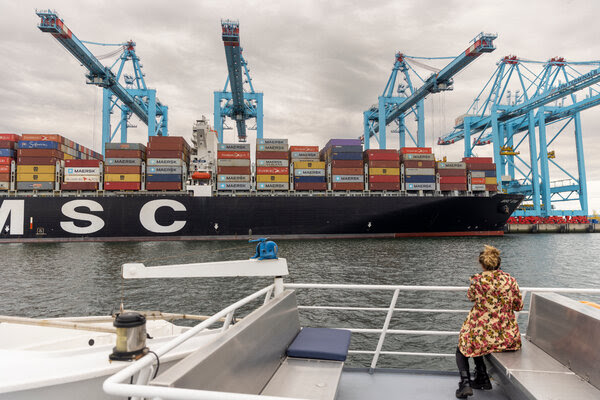
| Rotterdam, in the Netherlands, is one of the world’s biggest, busiest and most automated ports.Ilvy Njiokiktjien for The New York Times |
|
European sanctions against Russia put to the test
|
| Tough E.U. sanctions on Russia have created a new challenge for European governments and their authorities: actually enforcing them. Estimated to be worth 40 billion euros, or about $40.7 billion, Europe’s measures prohibit everything from high-tech goods to vodka from entering or exiting Russia, and they include a sweeping ban on Russian oil imports. |
| Practically speaking, sanctions policing happens at the sprawling terminals of Rotterdam, Europe’s largest port, and at smaller ports around the continent. It is a vastly complex, labor-intensive task that, officials admit, is far from perfect. The oil embargo will present still more difficulties: Oil can be reshipped, blended, refined or relabeled to conceal its Russian origin. |
| For the people working at Rotterdam, every E.U. sanctions package has meant that more and more of the burden of fulfilling a united European stand against Russia falls on them. According to the port’s own data, 58 million tons of goods were imported from Russia in 2020 and four million exported, with a collective value of approximately €34 billion. |
| Quotable: “If we had 100 percent sanctions and no trade flow was allowed, that would be the easiest,” the port’s chief executive, Allard Castelein, said. |
| Irish regulators threatened to block Facebook and Instagram from moving data about E.U. users to the U.S.Paulo Nunes dos Santos for The New York Times |
|
Facebook data policies in the spotlight
|
| A draft decision by Irish regulators yesterday threatened to block Facebook and Instagram from moving data about E.U. users to the U.S. It is the latest round in a yearslong dispute as governments around the world increasingly set rules and standards governing how data can move around the globe. |
| The decision increases pressure on negotiators to complete a deal to allow businesses to keep moving data across the Atlantic, without which the operations of thousands of businesses are thrown into question. Meta, which owns Facebook and Instagram, has said it may have to shut down the services in Europe if it cannot easily transport data. A blackout is considered unlikely. |
| Data protection regulators in other E.U. countries have a month to voice objections to Ireland’s order. Meta can also appeal the judgment in court. The draft order submitted on Thursday applies only to Facebook and to Instagram, and not to other Meta services like WhatsApp. |
| Background: Meta has been at the center of the debate because it was a subject of a lawsuit that led to a 2020 decision by the European Court of Justice that voided an important data-sharing pact between the E.U. and the U.S. The court said the agreement, known as Privacy Shield, was illegal because of a lack of privacy protections from American spying. |
Infertility Patients and Doctors Fear Abortion Bans Could Restrict I.V.F.
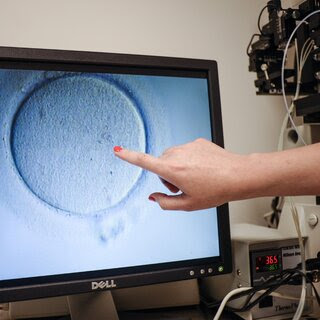 The new state bans don’t explicitly cover embryos created outside the womb, but legal experts say overturning Roe could make it easier to place controls on genetic testing, storage and disposal of them.
The new state bans don’t explicitly cover embryos created outside the womb, but legal experts say overturning Roe could make it easier to place controls on genetic testing, storage and disposal of them.
July 09
Biodiversity Crisis Affects Billions Who Rely on Wild Species, Researchers Say
The latest global assessment of the decline in plant and animal life found some bright spots but recommended significant changes to hunting and other practices to address the risks.
July 10
‘The Golden Age of Thrifting Is Over’
 A glut of fast fashion has made its way into local thrift stores, making it hard for women who have been purchasing secondhand for decades to find quality garments they can wear.
A glut of fast fashion has made its way into local thrift stores, making it hard for women who have been purchasing secondhand for decades to find quality garments they can wear.
Opinion | The Supreme Court Dealt a Terrible Blow to Children’s Health
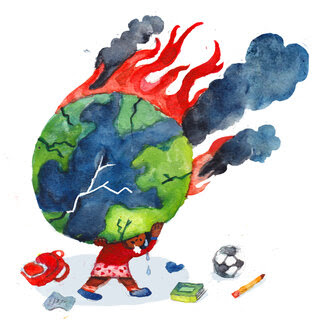 We are now learning that climate change and air pollution can act together to increase health effects.
We are now learning that climate change and air pollution can act together to increase health effects.
Share this - Deel dit met anderen:
Related










 Even some anti-abortion adherents say Texas is failing families left impoverished by its war against abortion.
Even some anti-abortion adherents say Texas is failing families left impoverished by its war against abortion.

 The new state bans don’t explicitly cover embryos created outside the womb, but legal experts say overturning Roe could make it easier to place controls on genetic testing, storage and disposal of them.
The new state bans don’t explicitly cover embryos created outside the womb, but legal experts say overturning Roe could make it easier to place controls on genetic testing, storage and disposal of them. A glut of fast fashion has made its way into local thrift stores, making it hard for women who have been purchasing secondhand for decades to find quality garments they can wear.
A glut of fast fashion has made its way into local thrift stores, making it hard for women who have been purchasing secondhand for decades to find quality garments they can wear. We are now learning that climate change and air pollution can act together to increase health effects.
We are now learning that climate change and air pollution can act together to increase health effects.
















3 thoughts on “The New York Times from July 04 – July 10”